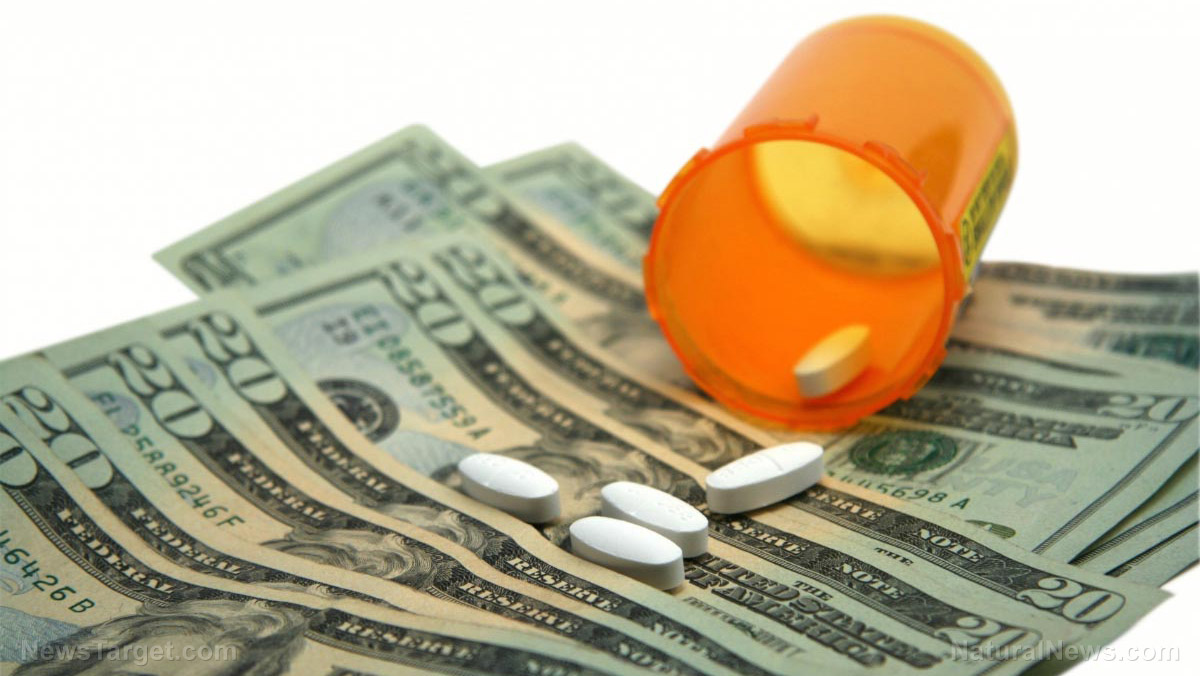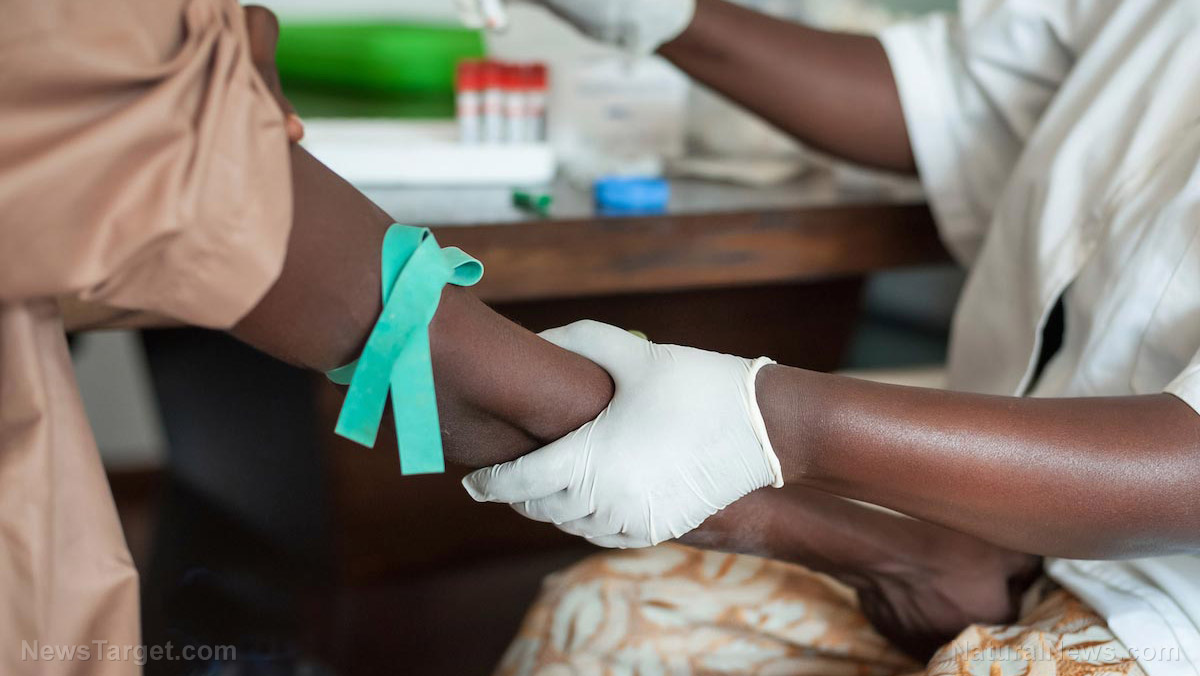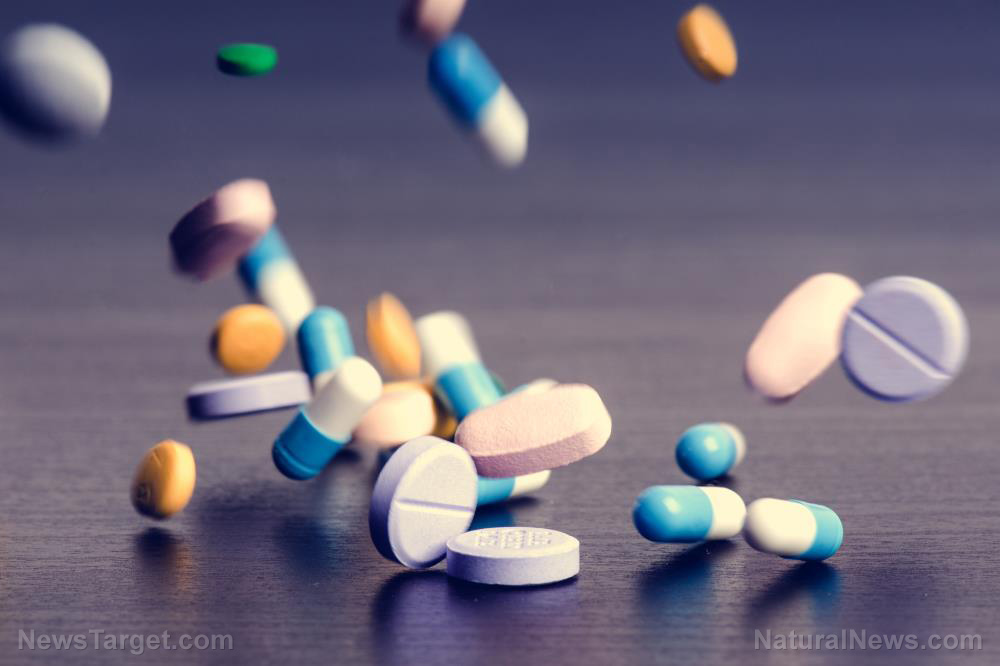Popular pain medications can increase your risk of hypoglycemia
10/15/2020 / By Cassie B.

There are a lot of drawbacks to taking prescription medications, with the risk of dangerous side effects chief among them, not to mention the price. And one of the more frustrating truths about many medications is how they seem to cause new health problems that you didn’t have before even on the rare occasions when they do manage to help the condition they were prescribed for.
This is the case with the popular opioid tramadol, which researchers have found can put patients at a higher risk of abnormally low blood sugar, or hypoglycemia.
Tramadol, like many opioids, has seen its use increase significantly in the last several years. It is now one of the top five prescribed opioids in the country as well as one of the top 60 prescribed medications overall.
Marketed under the names Ultram and ConZip, it is often prescribed for osteoarthritis and other painful problems. Part of the reason some doctors prefer it is because it has a lower potential for abuse than other opioids such as oxycodone and supposedly has a lesser risk of certain side effects.
However, as the drug’s popularity has soared, so have documented cases of negative effects. Researchers from the Skaggs School of Pharmacy and Pharmaceutical Sciences at the University of California San Diego published a paper in the journal Scientific Reports showing that patients who take tramadol have a much higher risk of hypoglycemia. They reached this conclusion after analyzing more than 12 million reports in the databases of the FDA’s Adverse Effect Reporting System from January 2004 to March 2019.
The researchers said that they decided to explore the drug because of its “dramatic surge” in popularity, and they said that the hypoglycemia finding was not only unlisted but also unexpected and quite dangerous. The drug’s recognized adverse reactions include headaches, constipation, nausea and dizziness.
Hypoglycemia is a problem that is often related to treating diabetes, but it can also occur in people who do not have the disease. If left untreated, it can cause serious complications such as vision loss, a loss of quality of life, an increased risk of falls and neurocognitive dysfunction.
10 Times higher risk of hypoglycemia
All told, the researchers discovered that there was a tenfold greater risk of hypoglycemia when using tramadol than every other opioid studied except for methadone. A larger randomized clinical trial is needed to make a more definitive causality, but this finding should be enough to give anyone who takes this opioid second thoughts.
The researchers say that physicians should be warned about the likelihood of patients who take this medication experiencing low blood sugar, especially those who are already predisposed to diabetes. This is particularly important given the fact that tramadol is used chronically and widely.
Tramadol also made headlines in 2016 when a leading U.K. pathologist said that the drug is killing more people than cocaine and heroin. Professor Jack Crane said that he thinks people do not realize just how potentially dangerous the drug is because it is a prescription drug and they assume it is safe. Activists in the UK are trying to get tighter restrictions placed on the drug, which many users are also getting from the black market. Some people are even having the drug prescribed for their dog and then taking it themselves.
Unfortunately, researchers are only just beginning to discover some of the negative side effects of certain popular drugs – and the ones we already know about are scary enough. That is why it’s best to take a proactive approach to staying healthy and trying natural treatments before taking a chance with risky prescriptions, especially opioids.
Sources for this article include:
Submit a correction >>
Tagged Under:
Big Pharma, health science, hypoglycemia, Opioids, painkillers, Prescription drugs, tramadol
This article may contain statements that reflect the opinion of the author
RECENT NEWS & ARTICLES
PrescriptionWarning.com is a fact-based public education website published by Prescription Warning Features, LLC.
All content copyright © 2018 by Prescription Warning Features, LLC.
Contact Us with Tips or Corrections
All trademarks, registered trademarks and servicemarks mentioned on this site are the property of their respective owners.



















